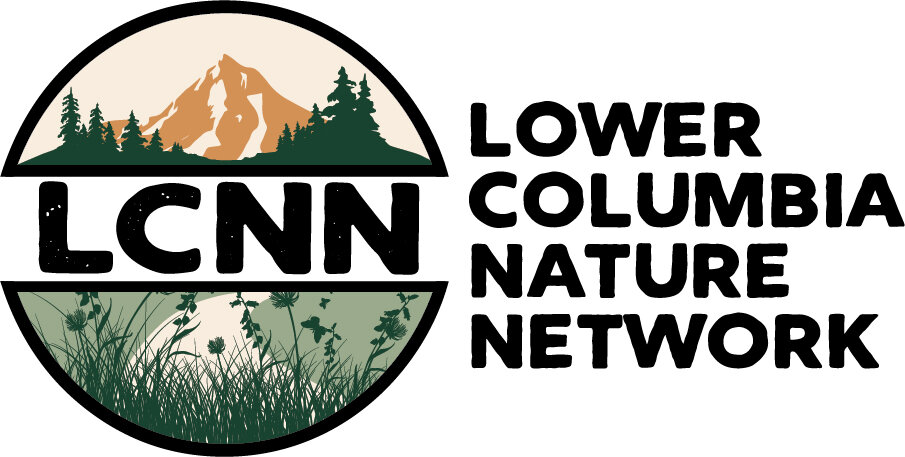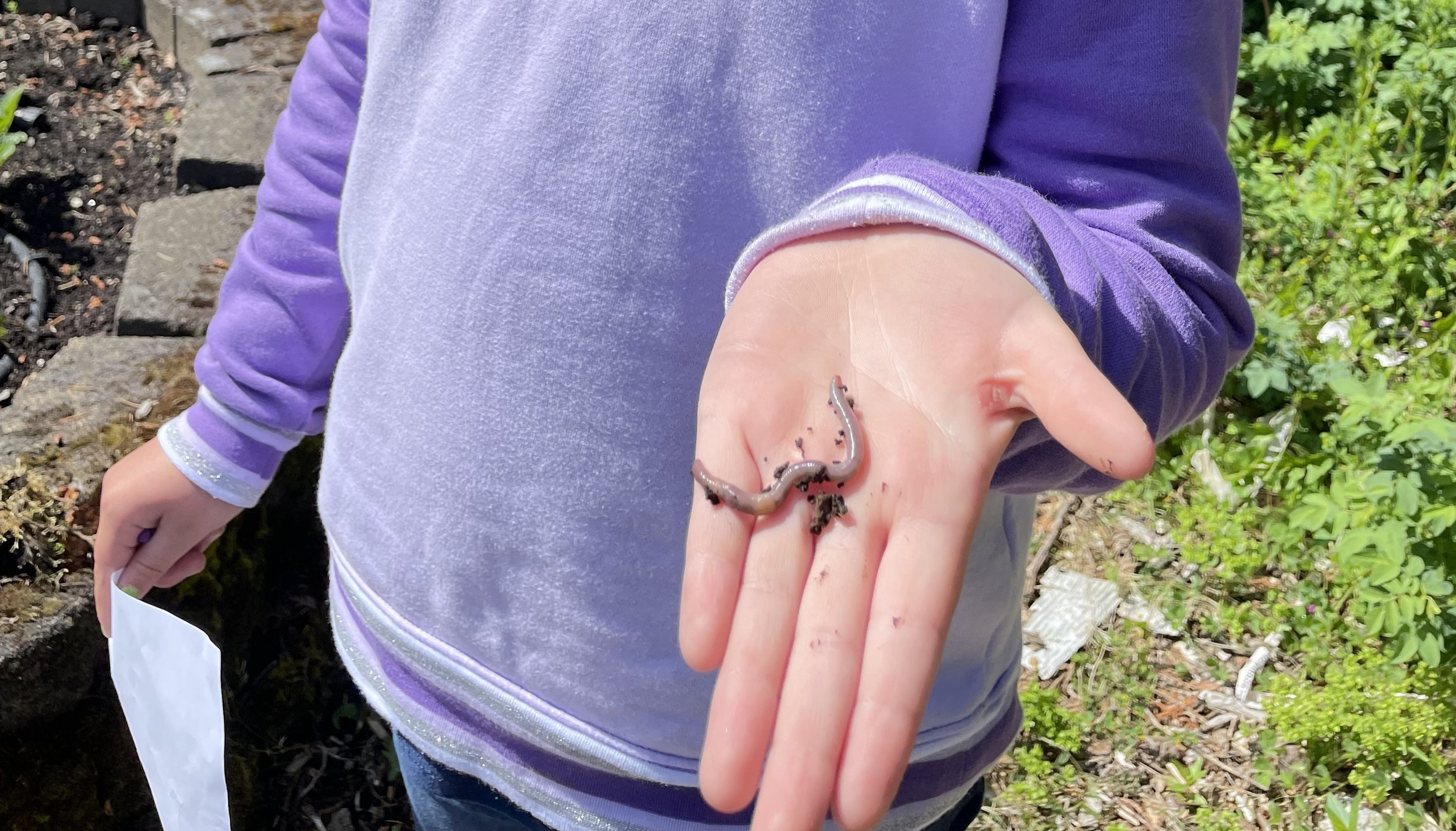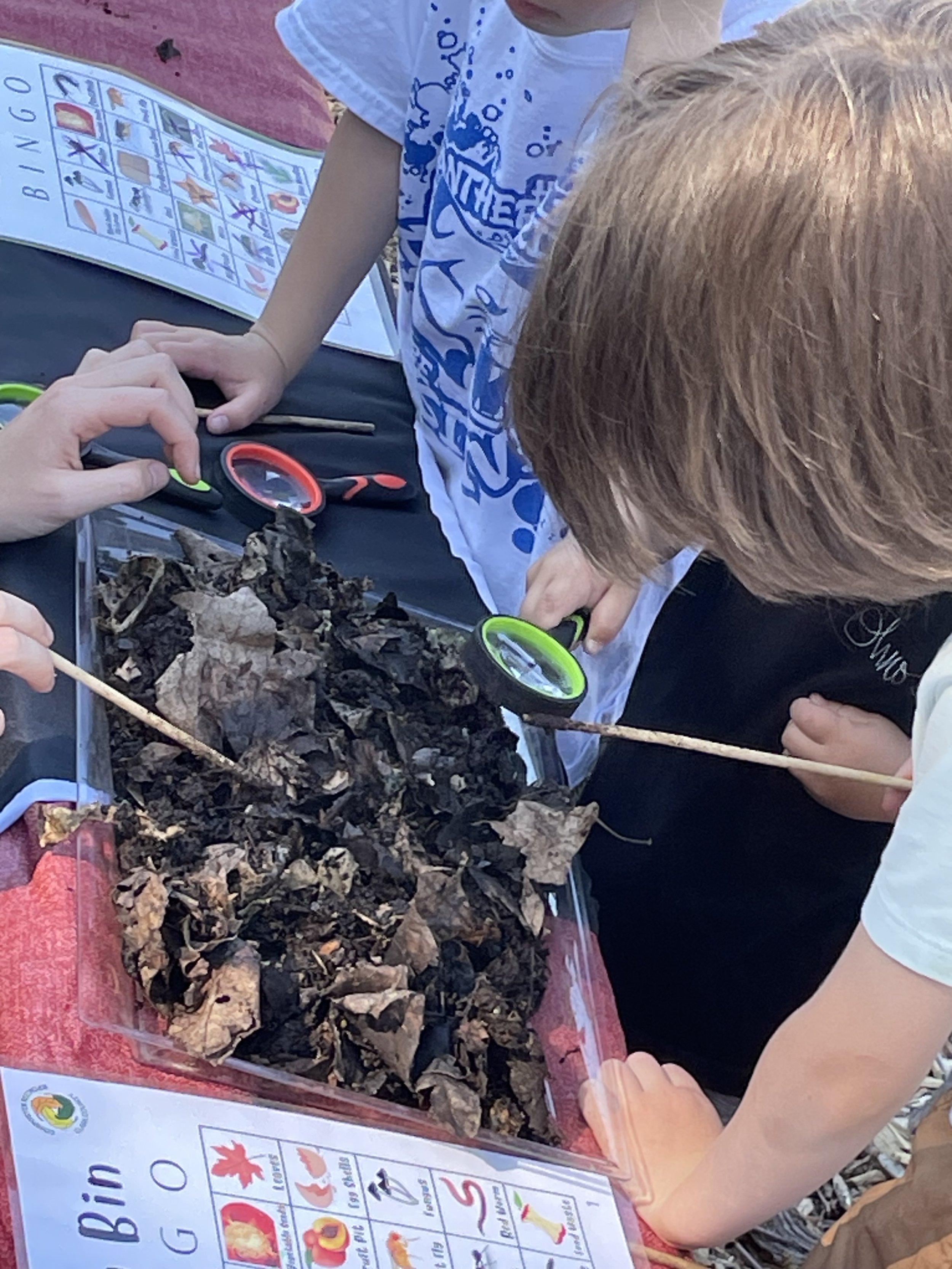School garden coordinator program - a year in review
Guest post by Bekah Marten, School Garden Coordinator, Clark County Master Gardener Program
The 2022-23 school year was the first full year of the Clark County Master Gardener's School Garden Program actively working in Vancouver Schools. This was a year full of building relationships with area schools, creating garden enrichment programs that offered garden access to all students, making numerous classroom visits, and offering staff trainings. Our program worked directly with seven different schools to support their teachers and students in the use of their garden and outdoor spaces. In total, over 4000 student visits were made to school gardens this past year!
As each school in our local community is different from one another, the garden programs employed at each school differs as well. When we begin working with a school, we ask what some of the goals are for the school garden space, how many of the classes will be using the space, what is the gardening knowledge of those on staff, and how can we best help the school make the most use of these amazing outdoor learning spaces. From there we develop a plan that may involve classroom visits where a selected topic and activity is covered, recess garden programs, staff training, as well as other support and resources.
This spring we offered a Spring Salad Garden program that many schools elected to participate in with their classes. Schools were supplied with seeds and starts for selected crops that could be planted, grown and harvested all before the end of the school year. Gardening in this way bypassed one of the common school garden challenges of what to do with the garden space in the summer months. It also allowed students to actually eat what they had grown, as we had often heard that student grown crops in the past had not been mature enough for harvest before the last day of school.
In addition to the seeds are starts for the salad gardens, small teams of Master Gardener volunteers visited classes through the spring to help teach students, and teachers, how and when to plant their crops. We covered many topics during these garden sessions. Students learned about how our food is connected to plants, how to read a seed packet for information, what makes up soil and why it matters, beneficial insects and pests, just to name a few. During the final weeks of school, students would visit their classroom garden one last time to harvest what they had grown and enjoy a large salad with their classmates. The remaining salad greens were sent home with students to share with their families or given to the schools’ resource counselors to share with families in need.
Another program we offered was Recess in the Garden. This program took place at Truman Elementary twice a month during students’ lunchtime recess. Recess in the Garden was a great way to provide garden access to ALL students who wanted to participate in a garden activity. Each session was run by both Master Gardener and school parent volunteers. At each session students were offered three garden stations of various themes such as birds, insects, vegetables, weather, and others. Recess in the Garden has been a great way to open up the garden to many students at one time.
Lastly, our program was able to provide support and training to area educators and parents. We did this in a variety of different ways. Throughout the school year, five school garden tours were offered at local schools with established school garden spaces. After school staff work parties were scheduled in the garden where teachers and staff were able to learn about the garden while they worked. And, a three-part webinar was offered through ESD 112 in partnership with Lower Columbia Nature Network, Mark Watrin of Battle Ground Public Schools, and Lower Columbia School Gardens.
It’s been a successful year in Vancouver area school gardens, and we look forward to what next year brings. Our team has already been at work this summer assessing what went well and what we would like next year to look like. We hope it is filled with more students and teachers taking their classrooms outside!



